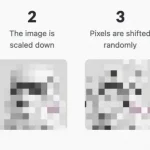What is the future of virtual reality?
Virtual reality (VR) is a rapidly evolving technology with the potential to revolutionize many aspects of our lives. In this article, we'll explore the future of VR, including its potential applications, challenges, and trends.

Virtual reality (VR) is a simulated experience that can be similar to or completely different from the real world. VR is created using computers and special headsets that allow users to see and interact with the virtual environment.
VR is still in its early stages of development, but it has the potential to revolutionize many aspects of our lives, including entertainment, education, healthcare, and business.
Applications of VR
VR has a wide range of potential applications, including:
- Entertainment: VR can be used to create immersive gaming experiences, virtual concerts, and other forms of entertainment.
- Education: VR can be used to create interactive learning experiences for students of all ages.
- Healthcare: VR can be used to train medical professionals, provide therapy to patients, and help people with disabilities.
- Business: VR can be used to train employees, conduct product demonstrations, and design new products and services.
Challenges of VR
VR also faces a number of challenges, including:
- Cost: VR headsets are currently expensive, which limits their accessibility to the general public.
- Motion sickness: Some people experience motion sickness when using VR headsets.
- Content: There is a lack of high-quality VR content available.
Trends in VR
The following are some of the key trends in VR:
- Standalone VR headsets: Standalone VR headsets do not require a computer or smartphone to operate. This makes them more portable and accessible to a wider range of users.
- VR for the enterprise: VR is increasingly being used in the enterprise for training, product design, and other purposes.
- VR and artificial intelligence (AI): AI is being used to create more realistic and immersive VR experiences.
The future of VR
The future of VR is bright. As the technology continues to develop and become more affordable, we can expect to see VR used in a wider range of applications and by a wider range of people.
Here are some specific predictions for the future of VR:
- VR will become more affordable and accessible to the general public.
- VR headsets will become smaller, lighter, and more comfortable to wear.
- There will be a surge in the development of high-quality VR content.
- VR will be used in new and innovative ways in the enterprise.
- VR will be combined with other technologies, such as AI and augmented reality (AR), to create new and even more immersive experiences.
Conclusion
VR is a rapidly evolving technology with the potential to revolutionize many aspects of our lives. As the technology continues to develop and become more affordable, we can expect to see VR used in a wider range of applications and by a wider range of people.
What do you think the future of VR holds? Share your thoughts in the comments below!

















